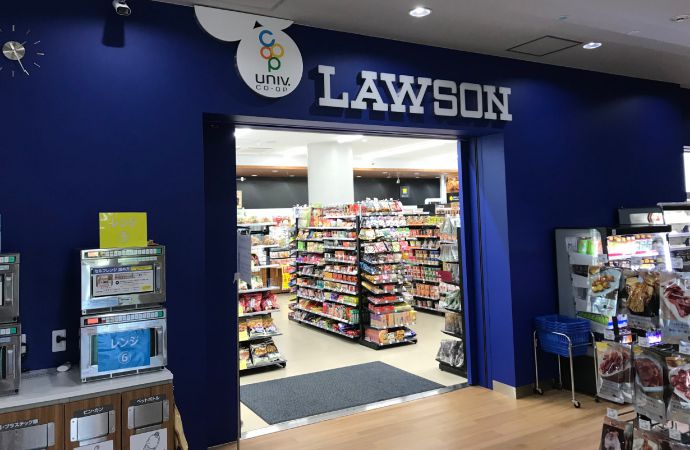On Monday, 14 April, OzonAction hosted a webinar titled “Refrigerants, Naturally! Cool Partnership”. hydrocarbons21 reporters tuned in to get the inside scoop on the Refrigerants, Naturally! partnership experience to date. Speakers from members The Coca Cola Company, PepsiCo, Redbull, and Unilever, as well as Claudia Becker of Refrigerants, Naturally! addressed their experience and strategies in “clever cooling”, highlighting their success in adopting natural refrigerants

In addition to presentations on their respective achievements in phasing out HFCs, the four companies represented at the Ozon Action webinar, The Coca Cola Company, Unilever, PepsiCo and Red Bull, all agreed on one important point: event though they support different natural refrigerants, they will not consider HFO refrigerants.
Refrigerants Naturally! supports policy for the advancement of natural refrigerants
Claudia Becker, Network Manager, Refrigerants, Naturally! explained the focus of the organisation as replacing f-gases only with natural refrigerants, particularly in plug-in point-of-sale refrigeration equipment. In addition to actively supporting policy for the advancement of natural refrigerants in commercial cooling technologies, Refrigerants, Naturally! undertakes a number of activities to aid in the global transition to the use of natural refrigerants and energy and resource efficient refrigeration systems:
75% of Coke’s CO2-cooled cold drink equipment more energy efficient than HFC counterparts
The Coca Cola Company’s (TCCC) refrigerant of choice is CO2. Bryan Jacob, Climate Protection Director, The Coca Cola Company, explained the TCCC decided to make the switch to CO2 in order to achieve its 2009 goal to phase-out the use of HFCs in all new cold drink equipment as of 2015.
Since The Coca Cola Company made its commitment in 2009 to phase-out HFCs, it has reached 1.1 million HFC-free units, including some using hydrocarbons. 38% of their 152 CO2 models are certified for harsh ambient conditions, 75% of those models are more energy efficient than their HFC counterparts, and 56% have better cooling performance than HFC versions.
Currently, TCCC is looking to continue its progress and is focusing on supply chain development. Jacob mentioned the “golden triangle” of business, government and civil society needed to accomplish goals and urges that cooperation is key in realising a global transition to “clever cooling” with natural refrigerants.
PepsiCo achieves 54% reduction in coolers’ energy use
PepsiCo began its journey to be HFC-free in 2007, investing in both hydrocarbons as well as CO2. Since then, the company has reduced its greenhouse gas emissions by 18%. In addition, the company has achieved 60% energy reduction in coolers and 54% energy reduction in vending machines since 2004.
Emad Jafa, Director Equipment Development, PepsiCo stated the next steps in achieving “clever cooling” around the world are to establish a robust infrastructure, address barriers based on region or country, further optimise the technology and develop global and comprehensive service manuals and training.
Unilever: 1.3 million hydrocarbon cabinets by 2015
Unilever’s vision is to double the size of its business whilst reducing its environmental footprint and increasing its positive social impact. To date, the company has cut by one third its manufacturing greenhouse has emissions and cut its manufacturing waste by half.
Berty Jacob, Senior R&D Manager, Unilever, explained that Unilever is committed to halving the greenhouse gas impact of its products by 2020, and as part of this, Unilever is active in rolling out greener freezers using hydrocarbons as the refrigerant. By the end of 2012, Unilever had purchased more than 1.28 million hydrocarbon cabinets, nearly meeting their 2015 goal of 1.3 million.
In addition to being a member of Refrigerants, Naturally! Unilever also works with the Consumer Goods Forum to drive an industry commitment to phase out HFCs by 2015. The company has even launched hydrocarbon cabinets in the United States through the SNAP program.
With Specialist Training Consultants, Unilever has developed a detailed training package for service technicians to ensure service personnel are trained.
Red Bull: commitment to achieve 100% hydrocarbon procurement
In 2008, Red Bull made the decision to switch to efficient and environmentally friendly technologies for commercial refrigeration. This decision included a commitment to reach 100% hydrocarbon procurement. The “ECO Coolers” also consume approximately 10% less energy, thanks to the use of natural refrigerants and other technologies such as LED lighting, energy efficient fans, and high performance insulating glass. At this point in time, more than half of Red Bull’s entire fleet of cooling equipment is ECO coolers. Florian Wallner – After Sales Management and Systems, Redbull noted components availability and legal and trade barriers as challenges that still need to be overcome in order to create a greener industry.
Background
Refrigerants, Naturally! is a global initiative of companies dedicated to combatting climate change by replacing environmentally harmful fluorinated gases with natural refrigerants. Its members include The Coca Cola Company, PepsiCo, Red Bull, and Unilever. Greenpeace as well as the United Nations Environment Programme support the organisation.
Refrigerants Naturally! supports policy for the advancement of natural refrigerants
Claudia Becker, Network Manager, Refrigerants, Naturally! explained the focus of the organisation as replacing f-gases only with natural refrigerants, particularly in plug-in point-of-sale refrigeration equipment. In addition to actively supporting policy for the advancement of natural refrigerants in commercial cooling technologies, Refrigerants, Naturally! undertakes a number of activities to aid in the global transition to the use of natural refrigerants and energy and resource efficient refrigeration systems:
- Sharing experiences and information within its network as well as externally, for instance through webinars
- Research and development and testing of alternative technologies
- Communicating the business case for natural refrigerants at conferences and technical meetings.
75% of Coke’s CO2-cooled cold drink equipment more energy efficient than HFC counterparts
The Coca Cola Company’s (TCCC) refrigerant of choice is CO2. Bryan Jacob, Climate Protection Director, The Coca Cola Company, explained the TCCC decided to make the switch to CO2 in order to achieve its 2009 goal to phase-out the use of HFCs in all new cold drink equipment as of 2015.
Since The Coca Cola Company made its commitment in 2009 to phase-out HFCs, it has reached 1.1 million HFC-free units, including some using hydrocarbons. 38% of their 152 CO2 models are certified for harsh ambient conditions, 75% of those models are more energy efficient than their HFC counterparts, and 56% have better cooling performance than HFC versions.
Currently, TCCC is looking to continue its progress and is focusing on supply chain development. Jacob mentioned the “golden triangle” of business, government and civil society needed to accomplish goals and urges that cooperation is key in realising a global transition to “clever cooling” with natural refrigerants.
PepsiCo achieves 54% reduction in coolers’ energy use
PepsiCo began its journey to be HFC-free in 2007, investing in both hydrocarbons as well as CO2. Since then, the company has reduced its greenhouse gas emissions by 18%. In addition, the company has achieved 60% energy reduction in coolers and 54% energy reduction in vending machines since 2004.
Emad Jafa, Director Equipment Development, PepsiCo stated the next steps in achieving “clever cooling” around the world are to establish a robust infrastructure, address barriers based on region or country, further optimise the technology and develop global and comprehensive service manuals and training.
Unilever: 1.3 million hydrocarbon cabinets by 2015
Unilever’s vision is to double the size of its business whilst reducing its environmental footprint and increasing its positive social impact. To date, the company has cut by one third its manufacturing greenhouse has emissions and cut its manufacturing waste by half.
Berty Jacob, Senior R&D Manager, Unilever, explained that Unilever is committed to halving the greenhouse gas impact of its products by 2020, and as part of this, Unilever is active in rolling out greener freezers using hydrocarbons as the refrigerant. By the end of 2012, Unilever had purchased more than 1.28 million hydrocarbon cabinets, nearly meeting their 2015 goal of 1.3 million.
In addition to being a member of Refrigerants, Naturally! Unilever also works with the Consumer Goods Forum to drive an industry commitment to phase out HFCs by 2015. The company has even launched hydrocarbon cabinets in the United States through the SNAP program.
With Specialist Training Consultants, Unilever has developed a detailed training package for service technicians to ensure service personnel are trained.
Red Bull: commitment to achieve 100% hydrocarbon procurement
In 2008, Red Bull made the decision to switch to efficient and environmentally friendly technologies for commercial refrigeration. This decision included a commitment to reach 100% hydrocarbon procurement. The “ECO Coolers” also consume approximately 10% less energy, thanks to the use of natural refrigerants and other technologies such as LED lighting, energy efficient fans, and high performance insulating glass. At this point in time, more than half of Red Bull’s entire fleet of cooling equipment is ECO coolers. Florian Wallner – After Sales Management and Systems, Redbull noted components availability and legal and trade barriers as challenges that still need to be overcome in order to create a greener industry.
Background
Refrigerants, Naturally! is a global initiative of companies dedicated to combatting climate change by replacing environmentally harmful fluorinated gases with natural refrigerants. Its members include The Coca Cola Company, PepsiCo, Red Bull, and Unilever. Greenpeace as well as the United Nations Environment Programme support the organisation.
MORE INFORMATION
Related stories



